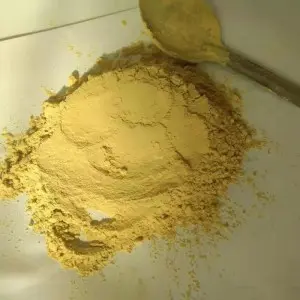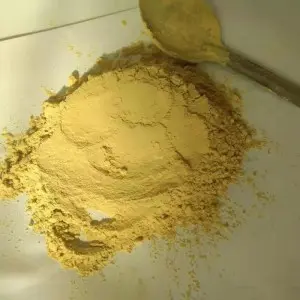Mar . 04, 2024 12:10 Back to list
Pollen allergy
What is pollen allergy?
Pollen is fine grains released from grasses, weeds and trees that fertilise other plants. It is carried by insects, birds or the wind and can travel a very long way from the plant where it originated.
Some people are allergic to pollen, meaning the pollen makes their immune system react. If they are exposed to pollen, they can get itchy and inflamed eyes and nasal passages (called hay fever or allergic rhinitis). The pollen can also enter the lungs and lead to asthma symptoms.
POLLEN FOR POLLINATION OF LARGE CHERRY
The amount of pollen in the air changes according to the season and where you live. For example, pollen counts can be very high in October and November in Melbourne and Hobart, and in the spring and summer in Adelaide, Sydney and Canberra. Brisbane and Darwin have high pollen for most of the year.
Allergic rhinitis and asthma are very common in Australia, and people with pollen allergy may experience symptoms for many months. This will depend on where they live and the types of pollen they are allergic to. Many people do not realise that pollen is the cause of their symptoms.
Sometimes pollen can trigger asthma in people who have never had it before, especially after a thunderstorm. This is known as thunderstorm asthma.
What are the symptoms of pollen allergy?
Pollen allergy can cause:
- runny, itchy, blocked nose
- sneezing
- irritable, itchy, watery and red eyes
- itchy ears, throat and roof of the mouth
Allergic rhinitis caused by pollen allergy can lead to sinus infections and poor sleep. It also makes asthma harder to control.
When should I see my doctor?
If you have allergic rhinitis or asthma symptoms during spring and summer, or if your hay fever medicines do not seem be working, talk to your doctor about whether pollen allergy could be the cause.
How is pollen allergy diagnosed?
If you think you have a pollen allergy, talk to your doctor. Allergy testing can help you learn what pollen or anything else you are allergic to.
How is pollen allergy treated?
If you have pollen allergy, antihistamines can control itching and sneezing in the long term. It may be best to choose an antihistamine that does not make you drowsy. You can also use saltwater nasal spray to relieve your symptoms.
Decongestant tablets or sprays may relieve a blocked nose, but they will not treat the inflammation caused by pollen allergy. Do not use decongestant nasal sprays for more than a few days, as they can cause long-term problems in the nose. Decongestant tablets can cause side effects including tremor, anxiety and trouble sleeping.
POLLEN FOR POLLINATION OF LARGE CHERRY
If you have moderate or severe pollen allergy, talk to your doctor about an intranasal corticosteroid spray, which you use daily to prevent symptoms. There are different brands and strengths, so make sure you follow the instructions carefully, and speak to your pharmacist if you're not sure how to take it. Some of these intranasal sprays medicines combine an antihistamine and corticosteroid to both treat and prevent symptoms.
If pollen allergy is causing asthma symptoms, it is especially important to keep your asthma under control. Your doctor may prescribe you a preventative asthma medicine to take daily, especially during times of the year when your symptoms get worse.
In some cases, your doctor may recommend allergen immunotherapy to 'switch off' your allergy to different pollens.
How do I manage my pollen allergy?
If you have a pollen allergy, the best thing you can do is to avoid being around pollen.
It's hard to avoid pollen completely, but you can reduce your exposure by:
- staying indoors until after midday on windy days and during the pollen season
- avoiding going outside after thunderstorms, particularly when there are high pollen counts
- protecting your eyes with sunglasses when you're outdoors, showering when you arrive home and rinsing your eyes with water
- avoiding mowing the grass, or wear a mask if you have to go near mown grass
- keeping windows closed at home and in the car, and using recirculating air conditioning in the car
- not picnicking in parts of the country during the pollen season
- removing any weeds that trigger your symptoms from around your house, especially from outside your bedroom window
If you are exposed to pollen, wash your hands, rinse your eyes with clean water and take an antihistamine.
Resources and support
Read more about pollen allergy on the Australasian Society of Clinical Immunology and Allergy (ASCIA) website.
Find information about plants that cause allergic rhinitis, and when they flower in Australia, on the ASCIA website.
Find the pollen forecast for your area on the Pollen Forecast website.
Get information about controlling your asthma from Asthma Australia.
-
Plant Pollen Analysis: Fast & Accurate with GPT-4 Turbo
NewsAug.02,2025
-
KiwiPollen with GPT-4 Turbo: AI Health Supplement Boost
NewsAug.01,2025
-
Pollen Peach Tree AI Management with GPT-4-Turbo
NewsJul.31,2025
-
Eco Fruit Paper Bags for Peak Freshness | Durability Focused
NewsJul.31,2025
-
Pollen Peach Tree for Pure Pollination and High-Quality Peach Pollen
NewsJul.30,2025
-
Premium Cherry Pollen for Pure Pollination & Different Types
NewsJul.30,2025

